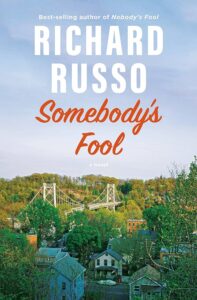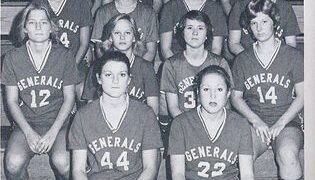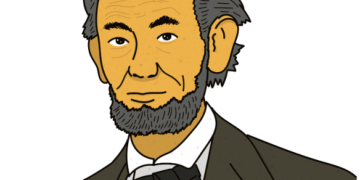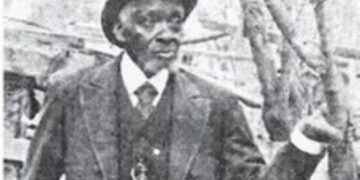Richard Russo’s Trilogy: Nobody’s Fool (1993), Everybody’s Fool (2016), and Somebody’s Fool (2023)
Richard Russo, a short story writer and novelist from Gloversville, in upstate New York, re-creates the small-town area where he grew up with the kind of authenticity that only a native can possess. In this respect, his fiction resembles that of writers of the “Rough South,” like Harry Crews and Larry Brown. Since 1986, Russo has written ten novels including Empire Falls, which won the Pulitzer Prize in 2002; he also wrote the teleplay for its HBO adaptation in 2005. Besides his novels, Russo has published a collection of short stories and Elsewhere: A Memoir, in which he reveals the hardships of his early life.

Other than Empire Falls, the most compelling of Russo’s works is his trilogy, set in North Bath. It features the Sullivan family along with a group of townspeople; in creating his town and its many characters, Russo reminds me of Faulkner and his Yoknapatawpha County with its 1,700 residents.
Russo set Nobody’s Fool in 1984, a time of change in the small rural town; left behind by its sister city, Schuyler Springs, North Bath is falling to ruin along with its main character Donald “Sully” Sullivan, his family and friends. It’s almost a mistake to use the term “family” to describe the Sullivan clan. Sully’s years growing up were nothing short of horrendous.
His father, a brutal drunk, mistreated every member of his family and evoked so much hatred in Donald that he has lived throughout his life with the motto, “Never forgive.” Fathering a son, Peter from his own unsuccessful marriage, Sully fails as a parent, too. Divorced, he abandons Peter and carries on a long term affair with a married woman, Ruth, but cannot commit to a legal relationship with her. Peter, after fathering three sons in his own broken marriage and, failing as a college professor, returns to North Bath with his son, Will and reluctantly seeks help from his father.
As a character, Sully symbolizes a dying order of masculinity in an era of fictional “whiney men.” Like the town of Bath, Sully, with a ruined knee, struggles on; he lives in apartment in the home of his friend, Beryl Peoples, but his real home is the bars and restaurants where he finds companionship with a set of fascinating characters: his limited “best friend” Rub Speers, Ruth and her family, and his sometime employer Carl Roebuck and his ex-wife Toby.
An inept town cop, Douglas Raymer, appears as a minor character in Nobody’s Fool. In an early review of the novel, Francine Prose lists its themes: “. . . change and stasis, free will and obligation, luck, responsibility, forgiveness—the bonds of community, friendship and family.” Nobody’s Fool became a successful movie in 1994 with Paul Newman in the starring role. Russo himself has said that Newman co-owned the character.
Set ten years later, Everybody’s Fool, offers Sully as a 70-year- old in failing health. His life changed financially when Beryl Peoples died and left her home to him; yet, he continues the same day-to-day routine of work, socializing and drinking. He lives in a decrepit trailer; his relationship with Ruth is in decline and her family is beset by its own difficulties that came with the marriage of her daughter Janie to Roy Purdy, the epitome of evil.
Doug Raymer, now a central character in Everybody’s Fool, has become the bumbling chief of police in North Bath. As the novel opens, Raymer is recovering from the loss of his wife, who died in a fall just as she is planning to elope with a new lover. Seeking to identify that lover, Raymer is clearly, the “everybody’s fool” of the title, but through the course of a few days he achieves a degree of redemption and a new love relationship with a Charise Bond, a Black female cop, one of Russo’s wisest characters. Reviewing the novel for the Portland Press Herald, Michael Berry asserts that it “reveals the characters’ inner lives, full of well-worn habit and surprising contradiction, with honesty, humor and compassion.”
Somebody’s Fool, published just last year takes place in 2010. Raymer becomes the major character in the novel. He and Charise have been lovers during the past years but are now, to his chagrin, taking a break. Sully’s son Peter now lives permanently in North Bath with Will, who is currently studying in London. Peter continues to teach, as a part-time professor, at a local college. Sully has died in the interim but remains a presence in the novel as he has left instructions with Peter to continue to look after the friends he has left behind.
Peter’s family problems evolve with the arrival of his bitter second son, Thomas, a petty criminal who seeks revenge for having been abandoned. Reviewing the novel in The New York Times, Hamilton Cain calls the novel “the narrative linchpin” to the trilogy, as it frames the “foibles [of the community] as social comedy in the mode of Charles Portis or Charles Dickens. Russo, like both of them, describes the “tumult [that] brews beneath sunny surfaces.” Russo, in my opinion, is probably still not finished with the Sullivan family—Peter’s three sons deserve their own stories.





























